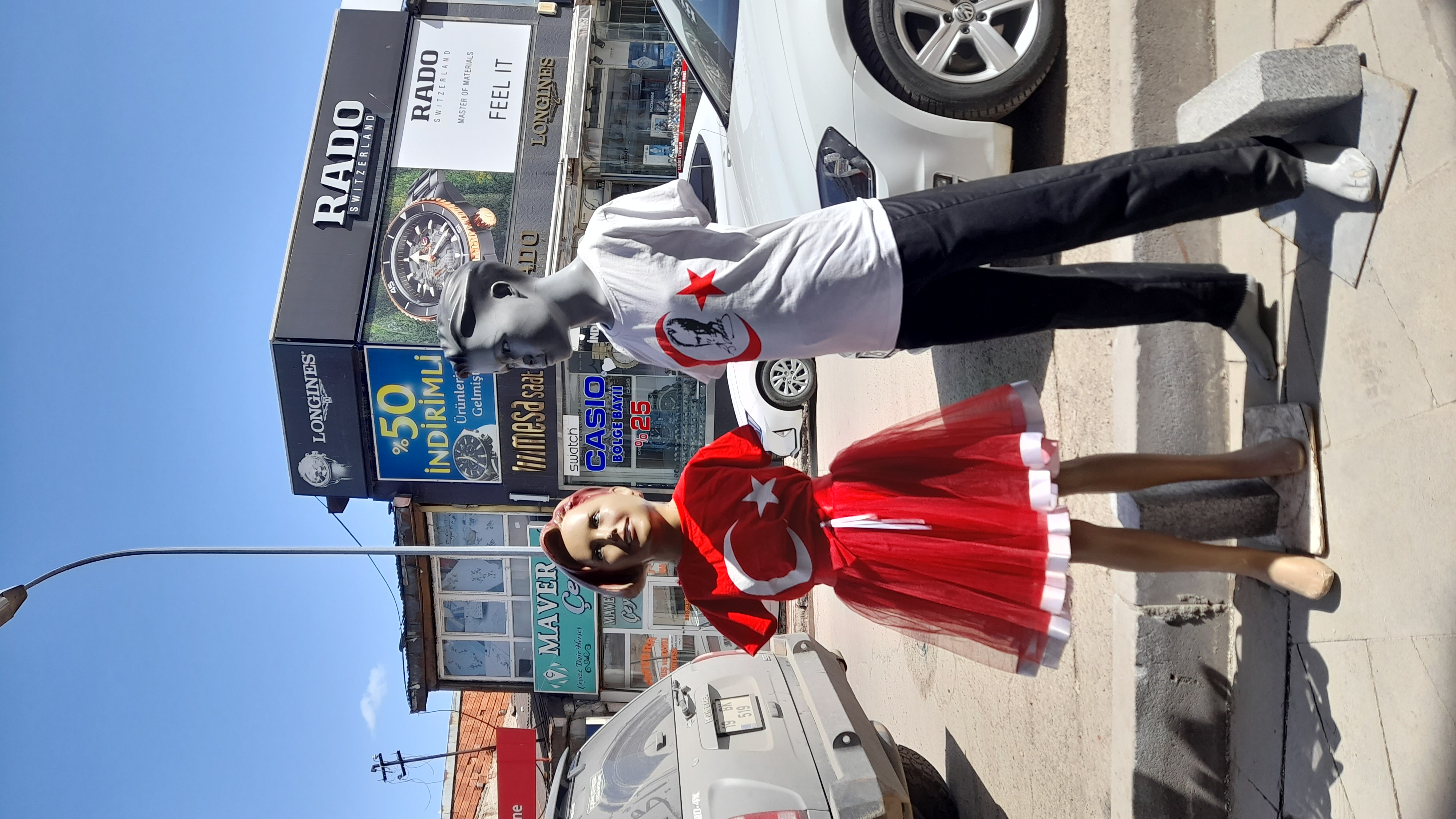No one is waving
12 Jun 2022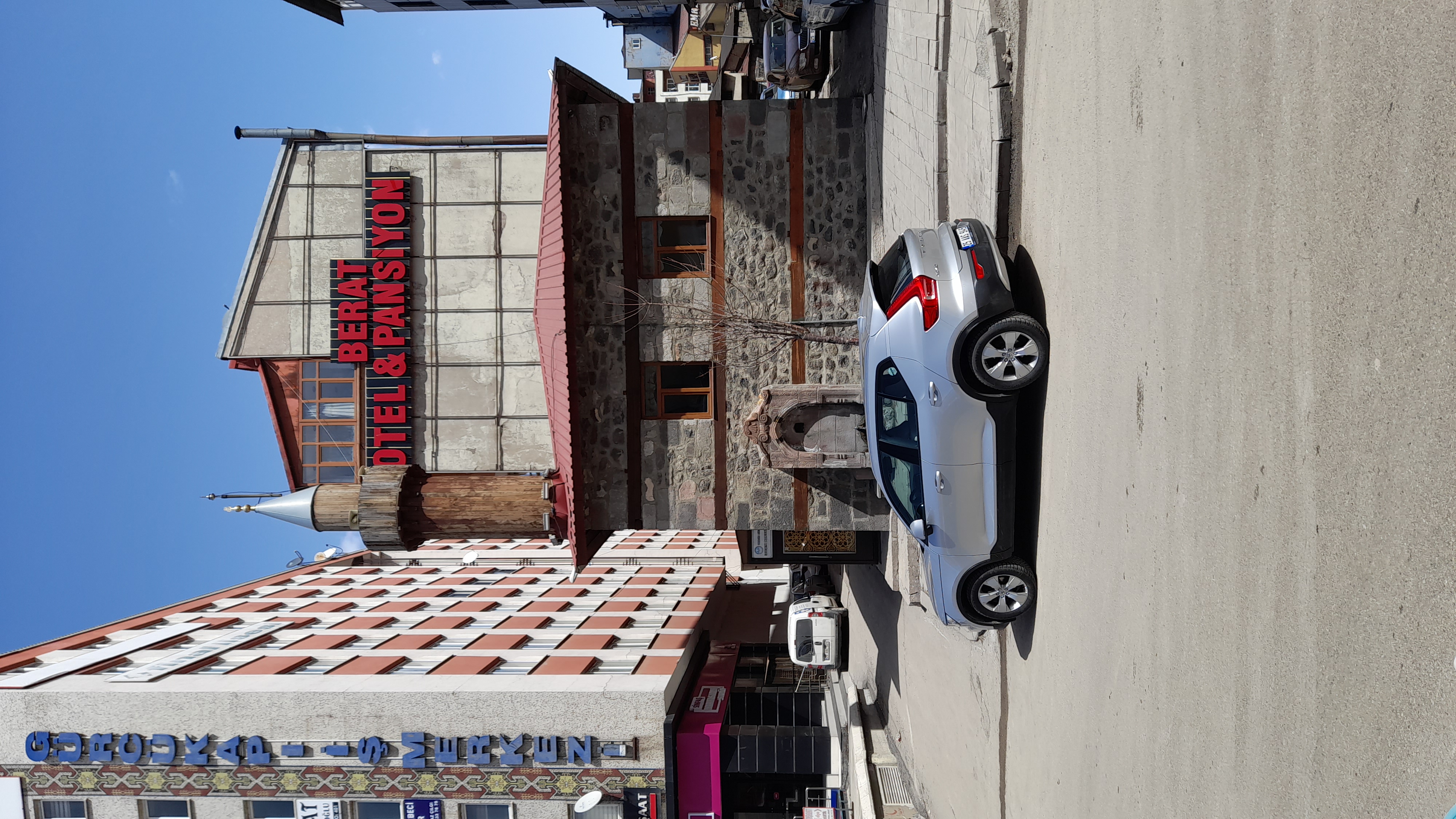
Erzurum, 3-4 of April, 2022
I am in a trance: the bus is an excuse not to think, not to plan, not to pay much attention to the frames of lives I could see from the window: I move too fast to collect anything of what I see.
All my senses are out of order: I want to reach the next destination: my phone stopped working, and my silence seems to be incompatible with the noise of my surroundings.
From the black coast to the cold mountains of inner Anatolia.
On our five hours ride to Erzurum we make a stop in between, not exactly at the middle of nowhere since it looks like there is no a middle of nowhere anywhere to be seen along the main roads: a long tentacle of desolated urbanization.
Along the road, as in many other places in the middle east, Mosques pop out in the wild like mushrooms (in some degree in Armenia and Georgia churches instead): they are not some ancient testimony but ready made structures with no history, with no pretense to outlast generations to come, in the era of populist regimes religious buildings also embrace massive anonymity, they almost feel as disposable as they are an authority reminder.
I try to imagine if in the future when all the aesthetical values will finally collapse we will perhaps enjoy buildings with big labels outside and a QR code from which we could scan augmented reality versions of them from the comfort of a phone screen.
Gas stations and mosques, mosques and gas stations, lonely mosques, lonely gas stations, lonely houses and shops framing the road.
Our stop triple down as a restaurant, a prayer room, and washing spot service for buses. I chose to stay at the restaurant.
A huge stork nest on top of a light pole not too far away catch my eye. I think of my nostos.
I drink tea. I wait. My phone is still out of service.
I brought a book for the trip: the letters Van Gogh wrote to his brother Theo. Before Wallace wrote Infinite Jest, there was Van Gogh: long detailed letters filled with technical descriptions of his inner struggles, his interaction, his paintings.
Van Gogh enjoyed travelling as an excuse to explore how his conflicts could transition into a permanent balance and his artwork as a source of income: he was eager to say to the potential buyer "this is how I truly see the world and now you could too engage in this vision momentarily for a small price" (augmented reality ante litteram). He hoped to put his sensibility and paintings at the service of reality and to yield from reality answers that could have been given sense to his ways of feeling. The equation ended up taking him on a spiral of deep solitude and misunderstandings.
It is a difficult sad reading, his book will keep me company but I won't read it anymore.
As we are getting closer to Erzurum it keeps getting colder, and darker.
Lucky enough my phone starts working again, and my host, F., arrived at a similar time.
We met at the Bus Station: another ode to inconvenience since the bus station is several km far away from the city center and the only shuttle to the city is taking longer than usual; it is also getting colder.
A guy with pancakes wrapped in plastic appeared and started giving out to everyone.
It is Ramadan, it is pass sunset. The shuttle should have been here 15 min ago.
After an hour the shuttle finally arrives, his happy driver take us to the city. F. a music teacher at the university, gives me a short explanation of the places: here is the university campus, here the new shopping mall, here the new part of the city, here is the old one, this is where we stop.
We order some Cig Kofte to go.
He lives in a huge apt. by himself, in the living room there is his recording studio, it will be where I will spend the night. From the window two particularities: the mosque is illuminated with bright neon light; the name of the Building complex is Ugurlu.
From Ugurlu mountains in Trabzon to Ugurlu building in Erzurum.
Erzurum is one part of those cities that represent the gate to and from somewhere, in this case into Anatolia towards Kurdish lands, and to the Black Sea and lower Caucasus.
An ancient Armenian city, conquered by the Romans, part of the Byzantine Empire, absorbed by the Arabs, demolished by the Mongols, rebuilt under the ottomans, contended by the Russians.
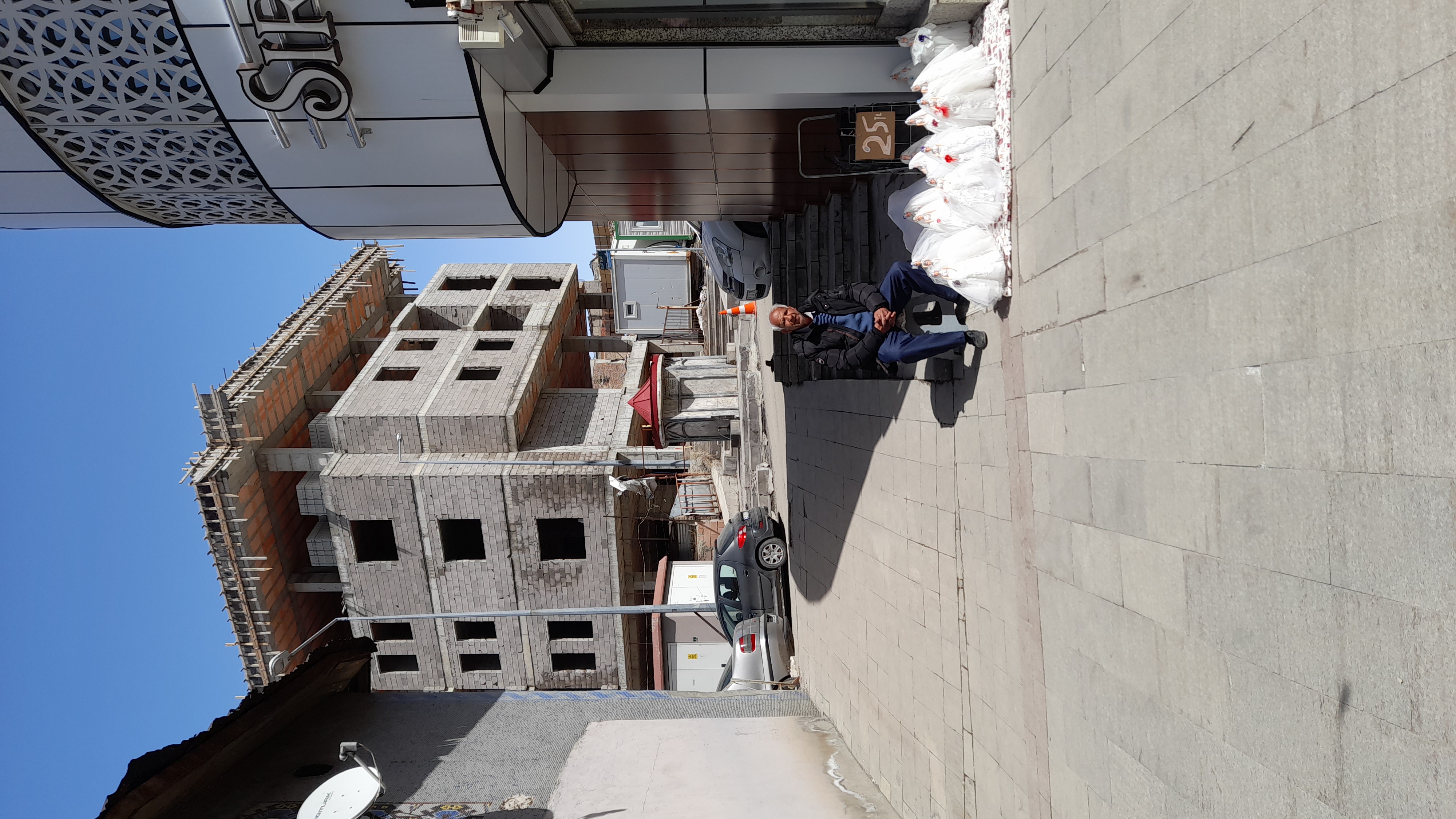
As day passes I keep on noticing an element that C.S. brought into our past conversations: any ancient rock standing in a Turkish cities does not feel like holding any relation with the city itself: the historical inheritances are at best a tourist attraction with some degree of curation, at worse they are free standing and forgotten while an accelerated and chaotic cementification transforms the fabric of the city.
F. he eloquently showed me instead how Erzurum can be conceived as transition spot in which instead of architectural elements, melodies and rhythms are the real grounds of the debate.
We listen to music, we dance together, we forget about politics, borders, trash.
When I travel, I often forget about music, I forget about nature, I forget about many aspects that should enrich my trip in a classical sense: I over indulge in voyeuristic tendencies: I observe and I absorb the degradation: where does it look different from the one in Tbilisi? where does it looks the same? can trash be a folkloristic component until it is properly dispose off? How come waste is disposed in such different ways? why we are so self destructive? How does a city dispose of itself?
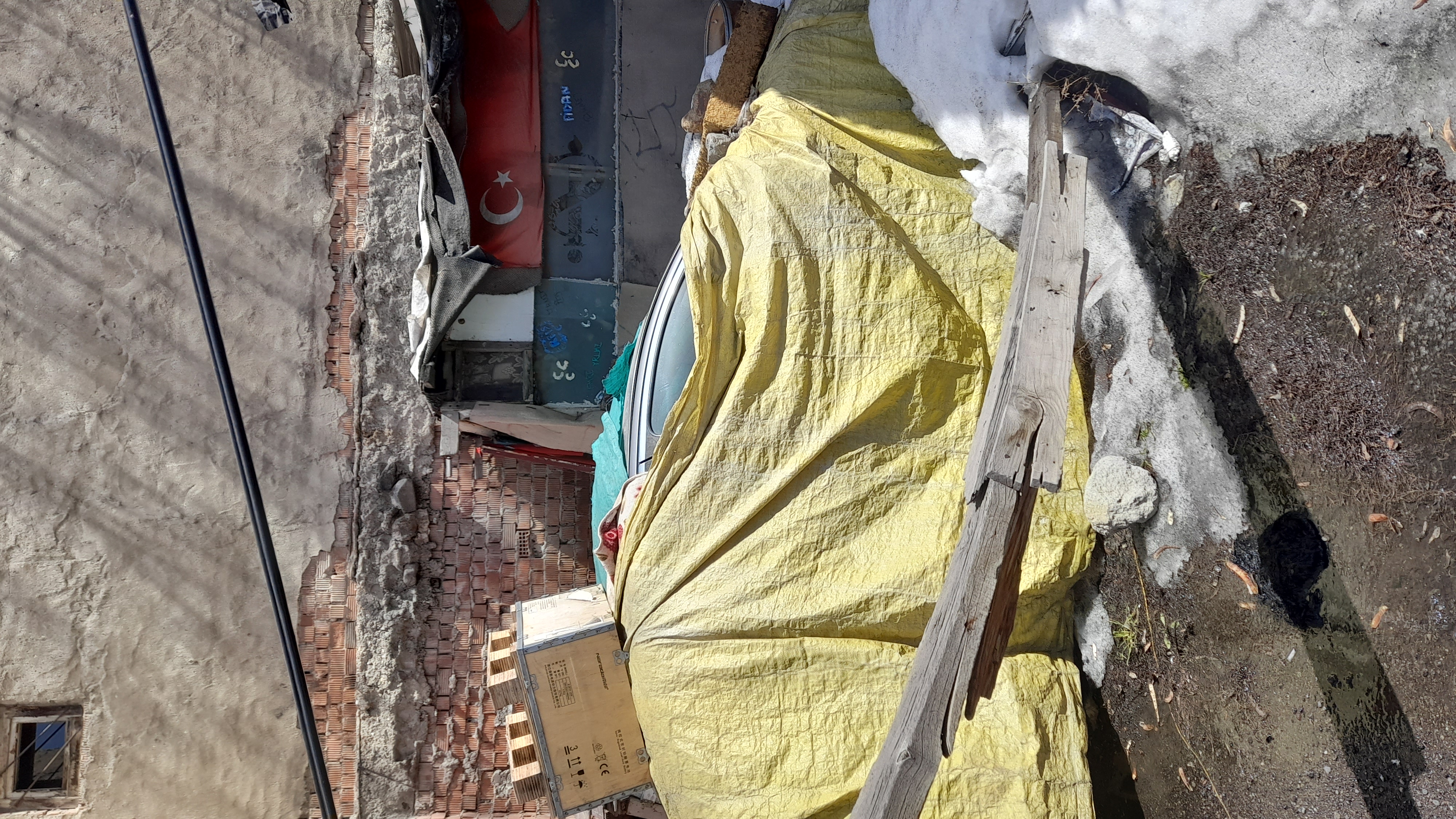
Erzurum was lovely in that regard: three magnificent tombs, two of them Armenian looking (some estimated they have been around since the 12th century) they have no inscriptions, no identity, they are surrounded by the snow covered mountain, they are in a hill, close to the main Madrassa, on an island of sorts in which right next to them a contemporary art museum is disorderly being built imitating all of the canon we banally associated with a contemporary art museum building (a museum can also be a fake).
The tombs are in pristine condition, in spite of the mud and pools of water filled with plastic bottles and cigarette butts around them: a mash up of new, and old, and collapsed houses lie not very far away from them: the tombs look even more majestic, the sky is clear, there is no one waving.
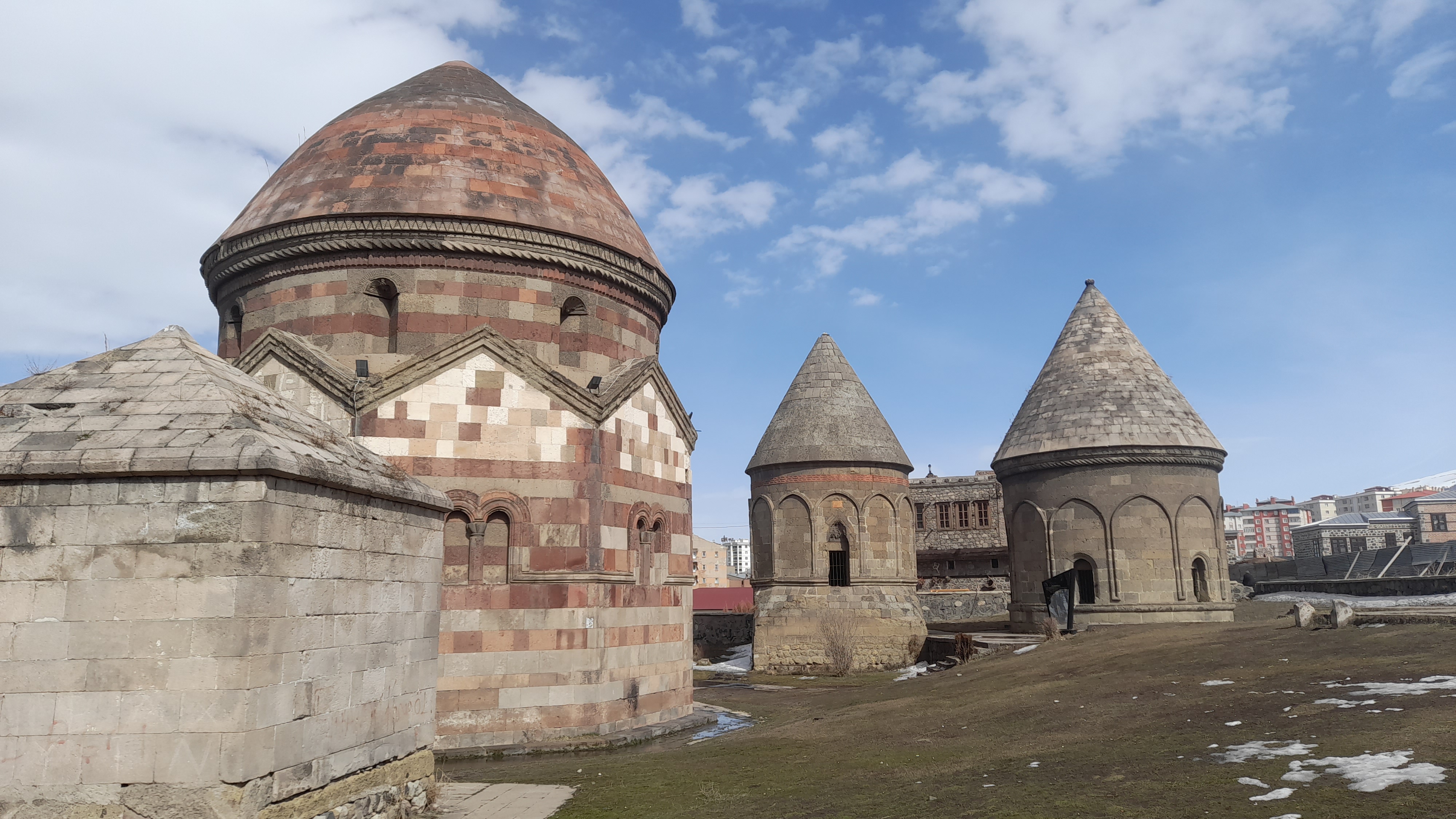
My circles in Erzurum are over.
